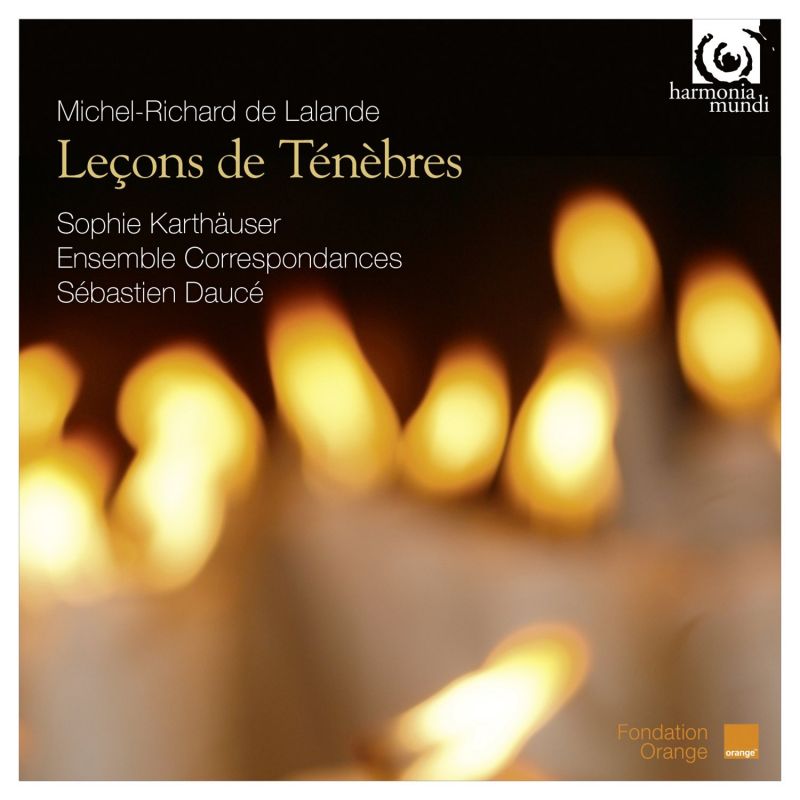LALANDE Leçons De Ténèbres
View record and artist detailsRecord and Artist Details
Composer or Director: Michel-Richard de Lalande
Genre:
Vocal
Label: Harmonia Mundi
Magazine Review Date: 06/2015
Media Format: CD or Download
Media Runtime: 76
Mastering:
DDD
Catalogue Number: HMC90 2206

Tracks:
| Composition | Artist Credit |
|---|---|
| (3) Leçons de Ténèbres et le Miserere |
Michel-Richard de Lalande, Composer
Ensemble Correspondances Michel-Richard de Lalande, Composer Sébastien Daucé, Conductor Sophie Karthäuser, Soprano |
Author: David Vickers
Ensemble Correspondances present a collection of only three lessons (one from each daily cycle) that was published posthumously in 1730, along with a setting of the psalm Miserere. In accordance with practices suggested in some historical sources, Sébastien Daucé’s texturally varied continuo group of harpsichord, organ, bass viols and lutes inserts brief ritournelle interludes during sections, and bass viol countermelodies are added. Sophie Karthäuser’s plangent singing covers a broad range of dynamic expression without ever obscuring a refined emotional essence, and tasteful embellishments always serve the meaning of the Lamentation texts. Her florid solo verses in Lalande’s Miserere are juxtaposed with simple choral verses sung by a group of nine women. Plainchant antiphons are intoned ardently by the nine ‘nuns’, and frame Lalande’s four pieces within a pseudo-liturgical context (these are selected from a source published contemporaneously in 1730).
Discover the world's largest classical music catalogue with Presto Music.

Gramophone Digital Club
- Digital Edition
- Digital Archive
- Reviews Database
- Full website access
From £8.75 / month
Subscribe
Gramophone Full Club
- Print Edition
- Digital Edition
- Digital Archive
- Reviews Database
- Full website access
From £11.00 / month
Subscribe
If you are a library, university or other organisation that would be interested in an institutional subscription to Gramophone please click here for further information.




